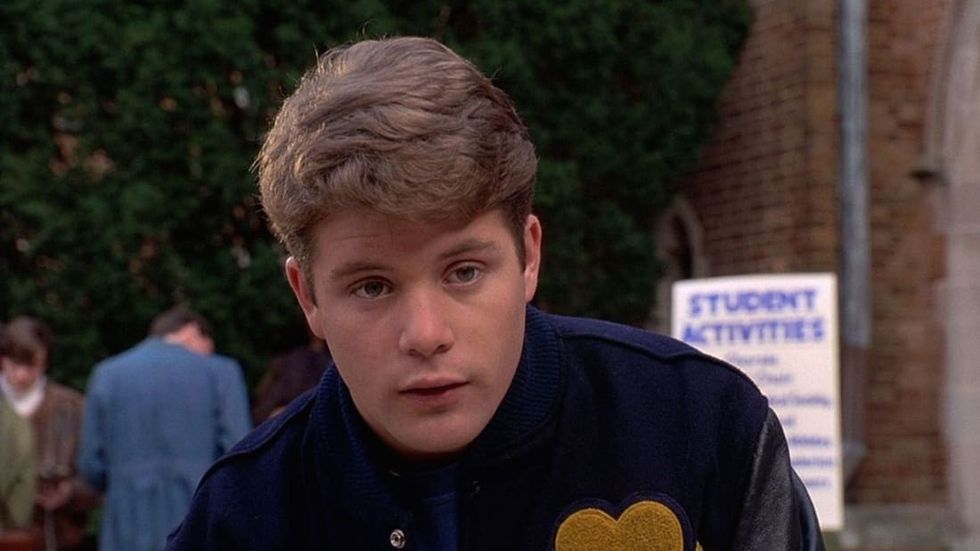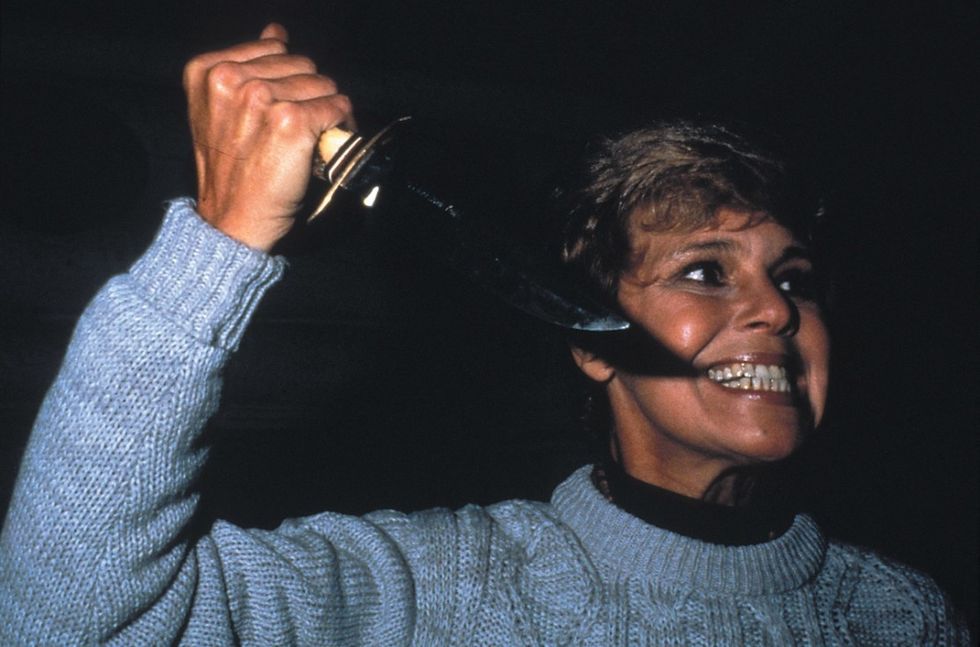
One of the hardest things about developing characters is choosing what makes them tick. You need to pick things that can help them arc, but you also need to make people feel relatable and well-defined in the audience’s eyes.
That’s what makes writing so hard—the nuance. You don’t want overbearing or “on-the-nose” statements about people. Sure, you can adapt archetypes, but you also want strong character traits that stand out and help you define what needs to happen in every scene.
You can use these traits to get your characters in trouble, reveal their fatal flaws, and subvert audience expectations. They’ll work for both the good and bad, protagonists and antagonists.
Today, I wanted to introduce you to twenty traits that I think could help you really focus in on the wants and desires of your characters.
Let’s work it all out together.
20 Strong Character Traits to Revitalize Your Protagonist and Antagonist
All right, I have a list that follows. I’m going to write a brief description of the trait and give you an example of how that character trait is exhibited in characters from film and television. If you have something to add, put it in the comments. Surely we can help each other when it comes to defining and describing characters for a new generation.
Here we go.
1. Persistence
We love a character who never gives up, and we like a villain who never thinks they’re beaten. Persistence is a virtue that can make us root for the underdog.
When I think about this word I think about someone like Rudy… from Rudy. All he wanted to do was make the football team, so he kept trying and trying. I also admire a villain who comes back for more and more, like in a slasher movie. They just never die.
 ‘Rudy’
‘Rudy’
Credit: TriStar Pictures
2. Faith
What do your characters believe will happen? Why do they think this way? In Scorsese’s Silence, we see a character willing to die for his beliefs. It’s also the trait that winds up breaking him. Faith is also something used against our characters in The Exorcist. It’s how the devil controls people.
Faith can be used for or against people in every scene.
 ‘The Exorcist’
‘The Exorcist’
Credit: Warner Bros.
3. Greed
Perhaps one of the most famous movie lines of all time, “Greed is good.” It drives Gordon Gecko and makes him the abusive mentor we love. But greed is also an underlying theme in many treasure hunt movies. It can be what lures Indiana Jones into perilous situations, and what he has to overcome to take his father’s hand and save himself.
4. Cruelty
We often want our villains to seem scary. Cruelty is a way to show their callous treatment of human life.
Like when Darth Vader has an entire planet wiped off the face of existence just because he can. Think also about the torture we see in Zero Dark Thirty, where our protagonists need to stoop to cruel methods to get the information they want.
5. Ambition
Our characters should have outward wants and goals, and ambition is what drives them. Maybe they’re stuck in a rut, but their arc might be finding ambition for more. Ambition is what drives Dr. Evil to try to take over the world and what makes Bruce Wayne think he can change the fate of Gotham.
6. Fearless
We have lots of examples of this in storytelling. From warriors with nothing to lose, to the Joker, who is embracing chaos as the outcome. Having no fear absolutely colors the way people behave. Think Martin Riggs in Lethal Weapon, who will jump off a building to save a suicidal man.
7. Vengeful
We have entire genres dedicated to revenge movies. You have The Bride in Kill Bill, who is consumed by wanting vengeance. But you might also think about someone like Walter White, whose revenge on his past might actually be an underlying goal of his rise to power as Heisenberg.
What happened in the past that made them this way? Consider that as you write.
8. Persuasive
How do you get people to do what you want? You need to persuade them to do it. Characters that are fast talkers, like a Jerry Maguire, have to persuade people to do what they want. Or maybe you work as a fixer, like Michael Clayton. They’re working to do something similar.
Villains also have to have this skill. It’s why they kidnap babies and turn you against your crew, like they did to Dom Torretto.
– YouTube
www.youtube.com
9. Humble
There are all different kinds of people out there. Some have great accomplishments and never acknowledge them, like a Mr. Miyagi in The Karate Kid. He has a lot of knowledge and power, but only uses it when he has to. Or even Ted Lasso, who knows a ton about coaching but never brags about it.
Can a villain be humble? How about the Governor, from The Walking Dead? He built a society out of dystopia and never brags about it. He just tries to run it as best as he can.
10. Loving
Love can inspire people to do great things. And sometimes not so great things. In Titanic, love drives our main characters to save each other from personal and existential disasters. Snape’s love for Lily Potter drove him to be cruel to Harry.
When love becomes an obsession, like how Syndrome becomes obsessed with Mr. Incredible and grows into a villain to make him pay, love can be a dangerous thing.
 ‘The Incredibles’
‘The Incredibles’
Credit: Disney
11. Optimistic
Does your character think it will all work out for them? Does your villain have a bright idea of the future? Thanos sure did. He knew he was doing bad things, but he had a sunny outlook.
Optimism can drive some people crazy, but people like Elle Woods in Legally Blonde use it to their advantage.
12. Self-disciplined
You have to train and keep your eyes on the prize if you want to succeed. Think about Kilmonger in Black Panther. He’s covered in the scars of the people he’s killed, and he won’t compromise on reaching his goal. Or what about a boxer like Adonis Creed? He has to learn how to fight to prove he is more than just his family’s name.
13. Thorough
Do you know who’s thorough? A detective. Sherlock Holmes, Jake Gittes, Hercule Poirot all make sure they collect all the clues.
But oftentimes, they are facing a villain who also thinks they are equally as thorough. Like Ransom in Knives Out or every single passenger on the Orient Express, these baddies cover their tracks and provide the misdirects to clear their names.
 ‘Knives Out’
‘Knives Out’
Credit: Lionsgate
14. Honest
Supposedly the best policy, honesty always has a place within characters. You have people like Jim Carrey’s character in Liar Liar, who physically cannot tell a lie. Or how about people who deliver cruel honesty without batting an eye, like Dr. Manhattan or Adrian Veidt from Watchmen?
– YouTube
www.youtube.com
15. Flexible
I’m not talking about people who can bend and contort their bodies, like Toad from X-men, although that’s kind of fun. I want people who can roll with the unexpected punches. Someone like MacGyver, who makes something out of nothing.
Or MacGruber, who kind of does the same thing but funnier.
Villains have to be a little flexible with their plans. Think about Javier Bardem’s Bond villain, who was willing to pivot and chase M to Bond’s country home.
16. Desperate
What happens when all is lost? How do we come to terms with things or get a grip?
A desperate character has something behind them driving them. Maybe it’s like someone in a Saw movie, willing to do unspeakable acts to survive, or a character on the edge, like in Pursuit of Happyness, whose protagonist will lay it all on the line for his son.
Are there desperate villains? Jason Voorhees’ mother wants the counselor to pay for what happened to her son. Or what about the actual Desperate Housewives?
 ‘Friday the 13th’
‘Friday the 13th’
Credit: Paramount Pictures
17. Forgiving
Bad things happen inside stories and movies, but it takes a powerful person to forgive. There’s always someone willing to turn the other cheek and accept an apology. Think about Peter Parker forgiving Harry Osbourne for being the Green Goblin. Or even the couples in Forgetting Sarah Marshall forgiving one another and moving on.
In terms of a villain, Doc Ock forgives Peter… and saves his life at the end of Spider-Man 2.
– YouTube
www.youtube.com
18. Impatience
We want things to happen to us right now. And so do our characters. Who are some impatient people in film and television? Joffrey from Game of Thrones comes to mind right away. A terrible villain, one of the worst we have ever seen, he wants what he wants now.
What about Eric Cartman? He sort of fits the hero and villain role, but he has no chill. I also thought about the Butcher from The Boys. He wants his justice, and he’s not sitting around and waiting for it.
19. Self-Control
You need to have control over your own actions and being. This is a lesson Ralph has to learn in Wreck-it Ralph. Or what about how Anakin is always controlled by his emotions and the dark side? You need self-control to stay on the light side in Star Wars.
Recently, I loved watching Brittany Runs a Marathon. It’s about a character who goes on a journey learning about control.
20. Loyalty
The last strong character trait I want to look at is loyalty within characters. You have the League of Shadows, who are all loyal to Ra’s al Ghul. Or on the right side, Samwise Gamgee, who sticks by Frodo throughout his incredible journey. Or what about a knight who pledges themselves, like Brienne of Tarth? Sith, too—Vader is loyal to Palpatine.
Think about how many characters have best friends, or villains who have evil sidekicks? Loyalty can be spread across people very easily.
– YouTube
www.youtube.com
What’s next? Get our free screenwriting eBook!
So much of what we’re talking about on No Film School when it comes to screenwriting is summarized in our new eBook. It also helps guide you through a 10-week writing plan that will get your script actually finished.
Author: Jason Hellerman
This article comes from No Film School and can be read on the original site.
